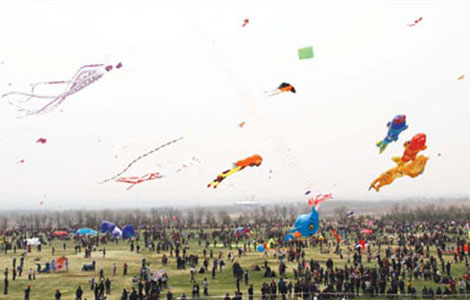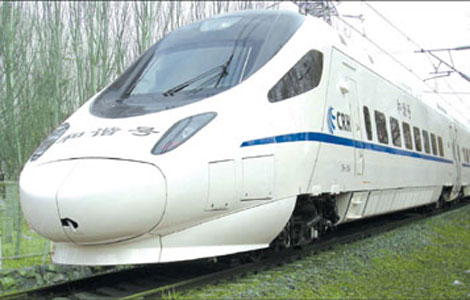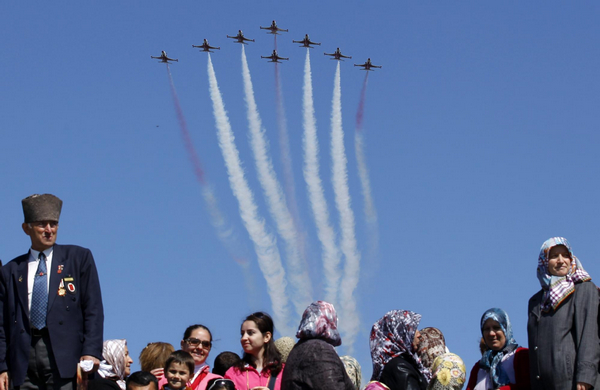Society
Turkey hosts ceremony for WWI battles
Updated: 2011-04-24 22:38
(Agencies)
CANAKKALE - Turkey hosted an international ceremony in its Gelibolu Peninsula in northwestern province of Canakkale Sunday to mark the 96th anniversary of the Canakkale Battles in World War I.
Turkish warships were passing through the Canakkale strait while fighter jets flew over the sky. The Turks were marching in Ottoman costume and soldiers shooting to solute those killed in the war 96 years ago. Wreaths were laid at the Monument of Martyears on behalf of Turkey, Australia, New Zealand, Bangladesh, France, Canada, Germany, India, Ireland, Pakistan and the United Kingdom.
Addressing thousands of people at the ceremony, Turkish Foreign Minister Ahmet Davutoglu said the Canakkale Battles, "which claimed lives of our grandfathers, has laid foundation of sound friendly ties between Turkish, Australian and New Zealander peoples."
"We think that Canakkale was the place where the first heartbeats of the Republic of Turkey were heard. Modern Republic of Turkey has risen from the ashes of an empire, thanks to the courage and determination of the young soldiers who sacrificed their lives to defend their country," he said.
"Today, we have gathered here to remember the lessons we learnt from the dark and painful days of the war. The Battle of Canakkale and the ensuing War of Independence imbued the Turkish people that war was nothing but a homicide. Therefore, the Republic of Turkey was built on Ataturk's principle of 'peace at home, peace in the world'. Turkey has become an island of stability in one of the most instable regions of the world for 88 years," he said.
Australian Veterans Affairs Minister Warren Snowdon said at the ceremony that "for the Australians who lie here, Turkey is their motherland. This is why Turkey has a special place in the hearts of the Australians. We are grateful to Turkey for letting us come back here each year and commemorate our own sons on these fields where you commemorate your own."
He noted that the Gallipoli Campaign had been a decisive moment for Australians, playing a big part in shaping the modern Australian nation. "This is what we call 'the Anzac Spirit,' a legend which pass on from the old to the young in Australia," he said.
The Gallipoli Campaign, also known as the Canakkale Battles, took place at Gelibolu peninsula in Turkey from April, 1915 to January, 1916, during the World War I.
A joint British and French operation was mounted to capture the Ottoman capital of Istanbul and secure a sea route to Russia. Australian and New Zealand Army Corps (ANZAC) formed the backbone of a 200,000-man British-led army that landed at Gelibolu. The attempt failed, with heavy casualties on both sides. The campaign resonated profoundly among all nations involved.
Nearly one million soldiers fought in the trench warfare at Gelibolu. The allies recorded 55,000 killed in fighting with 10, 000 missing and 21,000 dead of disease. The Turkish casualties were estimated at around 250,000.
The campaign was the first major battle undertaken by ANZAC and is often considered to mark the birth of national consciousness in both Australia and New Zealand. As "ANZAC Day", April 25 remains the most significant commemoration of military casualties in these countries.
Each year, thousands of people, many of them Australians and New Zealanders, travel to the battlefields in northwestern Turkey on ANZAC Day.
The battle is also considered a defining moment in the history of the Turkish people. The struggle laid the grounds for the Turkish War of Independence and the foundation of the Republic of Turkey eight years later under Kemal Ataturk, himself a commander at Gallipoli.
E-paper

Blowing in the wind
High-Flyers from around the world recently traveled to home of the kite for a very special event.
Image maker
Changing fortunes
Two motherlands
Specials

Models gear up car sales
Beauty helps steer buyers as market accelerates.

Urban breathing space
City park at heart of Changchun positions itself as top tourism attraction

On a roll
Auto hub Changchun also sets its sight on taking lead in railway sector

